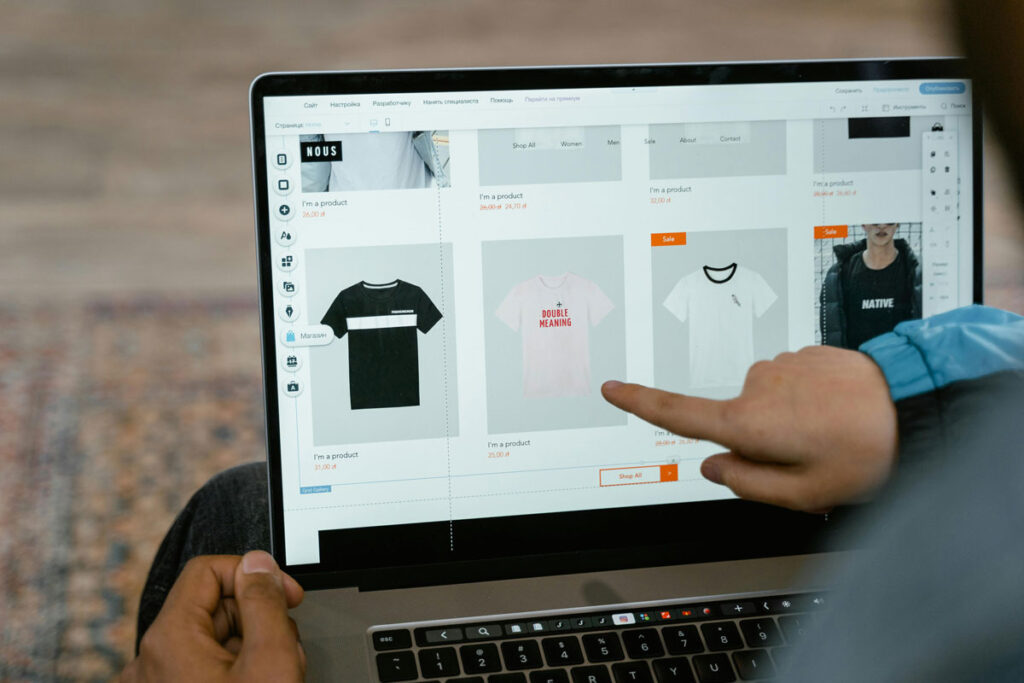Learn More About Us

You use PPC to boost website traffic and drive sales by paying for each click on your ad. It's an efficient way to reach potential customers that traditional methods might miss, targeting specific demographics for enhanced precision. You bid on keywordsWords or phrases that users type into search engines to find information. to place your ad in search results, aiming for a high-quality score to maximize your budget. PPC campaigns are cost-effective and provide immediate traffic, enabling you to track performance in real time. Different types of PPC ads, like search and display adsVisual-based ads that appear on websites, apps, or social media., serve various marketing needs. Dive deeper to discover the nuances that make PPC so impactful.

Understanding PPC basics is essential for leveraging this powerful digital marketing tool to drive targeted traffic and conversions. PPC, or pay-per-click, is a method where you pay a fee each time someone clicks on your ad. It's a way to buy visits to your site rather than earning them organically.
One of the most popular platforms for PPC is Google Ads, where you can create ads that appear on Google's search results pages. The primary goal of PPC is to help businesses grow their online presence, increase website traffic, and ultimately boost sales.
By targeting specific demographics, you can connect with new customers who are actively searching for what you offerThe specific product or service being promoted by affiliates.. PPC ads are highly effective because they allow you to reach potential customers that traditional advertising methods might miss.
Whether your business is in retail, services, or any other industry, PPC can help you achieve your marketing goals by closing sales and driving traffic to your site. Understanding how to use PPC strategically can give you a significant edge in today's competitive digital marketplace.
To understand how PPC advertising works, you'll first need to grasp the concepts of bidding and ad placement. Advertisers bid on keywords to guarantee their ads appear when users search for related terms, making targeting and relevance essential for success.
This strategy helps you reach a specific audience and maximize your ad spendThe total amount of money spent on advertising campaigns. efficiently.
In PPC advertising, advertisers frequently bid on specific keywords to secure ad placement in search engine results. Your ad's position is determined by a combination of your bid amount and your ad's quality scoreA metric used by Google Ads to measure the relevance and quality of keywords and ads.. The higher your bid and the better your quality score, the more likely your ad will appear in a prime position.
When you participate in the ad auction process, you set a maximum cost-per-click (CPC) you're willing to pay. This is the most you'll spend when someone clicks on your ad. However, you won't always pay your maximum bid amount; you'll pay just enough to outbid the next highest competitor. This makes PPC a cost-effective advertising model because you're only charged when someone actually clicks on your ad.
Ad placement isn't just about bidding high; it's also about relevance and quality. Search engines consider the ad's relevance to the keyword and the user experience when determining placement. In this way, even with a lower bid amount, you can still achieve great placementsSpecific websites or locations within websites where ads can appear. if your ad is highly relevant and of high quality. This ensures that your advertising budget is used efficiently, delivering the best results for your investment.
PPC advertising often focuses on targeting specific demographics and audiences to guarantee your ads reach the most appropriate users. By leveraging targeted traffic, you make sure your ads are shown to users who are actively searching for products or services related to what you offer. This increases the likelihood of conversions, as your ads appear at the right moment when potential customers are looking for what you provide.
Advertisers bid on keywords that are relevant to their business, paying only when users click on their ads. This bidding system ensures that your ads are competitive and positioned to attract the most interested users.
The relevance of the keywords, ad copyThe text or content of an advertisement., and targeting parameters you set play a significant role in determining the success of your PPC campaigns.

When you use PPC, you'll find that it offers cost-effective advertising solutions with control over your budget and payment.
It generates immediate traffic, allowing you to see quick results and conversions.
Plus, PPC enables precise audience targeting based on demographics, devices, time, and location, ensuring your ads reach the right people.
Leveraging PPC allows you to control your budget and payments, making it a cost-effective solution for businesses of any size. With PPC advertising, you can allocate your funds as you see fit and only pay when someone clicks on your ad. This makes it an efficient way to manage your marketing expenses while making sure you get the most out of every dollar spent.
Another significant advantage is the ability to create highly targeted campaigns. You can direct your ads to specific demographics, devices, times of day, and even geographic locations. This precision ensures that your ads reach the right audience, maximizing your ROI and reducing wasted spend on uninterested viewers.
Moreover, PPC's flexibility enables you to test and refine your strategies easily. A/B split testingAnother term for A/B testing, where two versions of a webpage or element are compared. allows you to compare different versions of your ads to see which performs better. The data gathered from these tests is invaluable for tweaking your campaigns and continuously improving your results.
Generating immediate traffic is one of the standout benefits of PPC advertising, driving targeted visitors to your website almost instantly. When you use PPC, your ads appear at the top of search engine results pages, thanks to search engine marketing. This ensures your business gets noticed by users actively searching for products or services like yours.
The power of PPC lies in its ability to deliver targeted traffic. You can direct your ads to specific groups of people based on factors like location, interests, and search behavior. This means the visitors clicking on your ads are more likely to be interested in what you offer, increasing the chances of conversions.
Another significant advantage is the measurable results you get with PPC. Unlike some traditional advertising methods, PPC provides real-time data on how your campaigns are performing. You can track metrics such as clicks, impressions, and conversionThe completion of a desired action by a referred user, such as making a purchase or filling out a fo... rates. This transparency allows you to see exactly how your investment is paying off and make adjustments as needed for peak performance.
In essence, PPC is a powerful tool for businesses looking to boost their online presence quickly, attract the right audience, and effectively measure their advertising efforts.
Beyond driving immediate traffic, PPC's ability to target precise audiences stands out as a key benefit, enabling businesses to connect with potential customers who are most likely to convert. Audience targeting in PPC campaigns allows you to reach individuals based on specific demographics, interests, and behaviors. This focused approach guarantees that your ads are seen by people who are genuinely interested in your products or services, ultimately boosting your conversion rates.
To better understand the advantages of precise audience targeting, consider these points:
With PPC, you can deliver tailored messaging to the right audience at the right time. This strategic targeting not only improves the effectiveness of your campaigns but also helps capture more qualified leads.
Understanding the different types of PPC ads can help you craft an effective advertising strategy. Search ads are one of the most common types, appearing at the top of search engine results when users look for specific keywords. These ads are great for capturing high-intent users already searching for products or services like yours.
Display ads, on the other hand, appear on websites within the Google Display NetworkA group of more than two million websites, videos, and apps where Google Ads can appear.. They're visually engaging and can help you reach a broader audience by displaying your ads on various sites, apps, and even YouTube. These are particularly effective for brand awarenessThe extent to which consumers are familiar with the qualities or image of a particular brand. and can target users based on their interests and browsing behavior.
Video adsAdvertisements that play video content, often on platforms like YouTube or social media., typically shown on platforms like YouTube, allow you to convey your message through engaging video content. They can appear before, during, or after videos and are excellent for storytelling and demonstrating product features.
Beyond these, you can also use remarketing ads to target users who've previously visited your site but didn't convert. Performance Max ads utilize machine learningA subset of artificial intelligence where computers use data to learn and make decisions. to optimize across Google's platforms, and Local Services Ads (LSAs) are perfect if you run a service-based business, appearing prominently at the top of search results.
Understanding these types can help you choose the right ones for your goals.

When selecting the right types of PPC ads, it's equally important to assess which platforms will best reach your target audience. Different platforms offer unique benefits, so understanding the strengths of each can guide your decision.
Here are the top PPC platforms you should consider:
To create an effective PPC strategy, begin by defining clear campaignA set of ad groups sharing a budget, targeting options, and other settings. goals that will guide all your subsequent decisions. Whether you aim to increase website traffic, generate leads, or boost sales, having specific objectives ensures focused and measurable results.
Next, immerse yourself in PPC strategy planning by researching and utilizing relevant keywords. These keywords should align with what your target audience is searching for, helping you reach them effectively.
After identifying your keywords, you need to create engaging ad copy. Your ad content should resonate with your target audience and encourage them to click. It's vital to address their needs and interests directly in your messaging.
Choosing the right ad platforms is another important step. Analyze where your target audience is most active—whether it's Google, Bing, or social media sites like Facebook and Instagram—and focus your efforts there. Each platform has its own strengths, so select the ones that best align with your campaign goals.
A strategic approach to PPC planning is fundamental for maximizing your ROI. By setting clear goals, using relevant keywords, crafting compelling ads, and selecting the right ad platforms, you'll be well on your way to achieving your campaign objectives.
Mastering PPC campaign essentials lays the groundwork, but identifying the right keywords is essential for driving meaningful traffic and conversions. Conducting efficient keyword researchThe process of finding and analyzing search terms that people enter into search engines. helps you pinpoint the search terms your potential customers use. This step guarantees your PPC campaigns are targeting the right keywords, increasing the chances of your ads appearing to the right audience.
Start by analyzing search volume, competition, and relevance. High search volume keywords might seem appealing, but they often come with high competition. Instead, consider incorporating long-tail keywordsLonger, more specific keyword phrases that are less competitive and often more targeted.. These longer, more specific phrases may have lower search volumes but can reach a more targeted audience. This specificity often leads to higher conversion rates because the users searching these terms are further along in their buying journey.
Don't set it and forget it; continuous keyword research and optimization are vital. Your market and competitors are always evolving, and so should your keyword strategy. Regularly review your PPC campaigns to refine your keyword list, making sure you're consistently targeting the most valuable search terms. By staying proactive and adaptive, you'll maintain your campaign's effectiveness and stay ahead of the competition.
Diving into reputable learning resources is essential for honing your PPC skills and staying ahead in the competitive digital marketing landscape. Whether you're a beginner or an expert, continuous learning will help you develop effective strategies and maximize your ROI.
Here are three high-quality learning resources you shouldn't miss:
Staying informed and utilizing these resources will ensure you're always implementing the most effective PPC strategies.
Your goal with PPC is to drive targeted traffic to your site, boost your online presence, and increase sales. You'll connect with new customers and effectively target specific demographics to achieve your conversion objectives.
The role of PPC is to drive targeted traffic to your website, increasing conversions and sales. You'll efficiently reach specific demographics and connect with new customers, ultimately growing your online presence and achieving your business goals.
The main importance of PPC is achieving a $2 return for every $1 spent. You'll get quick results, precise targeting, and measurable outcomes. Plus, you can control your budget and adjust settings for peak performance in real time.
PPC is responsible for driving targeted traffic and conversions from search engines to your website or landing pageThe web page a user is directed to after clicking on an affiliate link, optimized for conversions.. You'll reach the right audience, boost sales, and grow your online presence by precisely targeting specific demographics, keywords, and locations.
You've now got a solid grasp of PPC advertising. By understanding its basics, key benefits, types, and top platforms, you're ready to plan and execute effective campaigns.
Keep honing your keyword research skills and utilize the available learning resources. Remember, a well-strategized PPC campaign can drive significant traffic and conversions.
So, immerse yourself, experiment, and watch your online presence grow. You're equipped to make PPC work for you!
